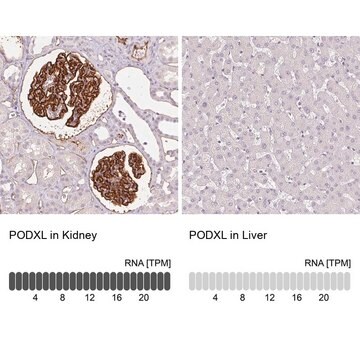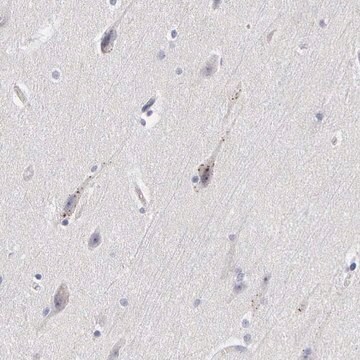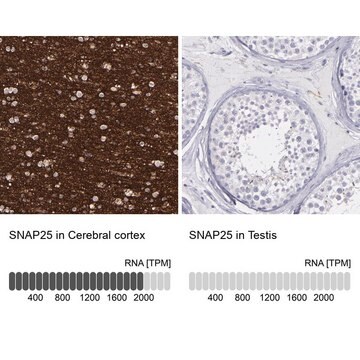추천 제품
생물학적 소스
rabbit
Quality Level
결합
unconjugated
항체 형태
affinity isolated antibody
항체 생산 유형
primary antibodies
클론
polyclonal
양식
buffered aqueous solution
분자량
antigen 48 kDa
종 반응성
mouse, rat
기술
immunohistochemistry: suitable using suitable for IHC on rat brain perfused with 4% paraformaldehyde
microarray: suitable
western blot: 0.5-1.0 μg/mL using mouse brain and rat brain extract (S1 fraction)
UniProt 수납 번호
배송 상태
dry ice
저장 온도
−20°C
타겟 번역 후 변형
unmodified
유전자 정보
mouse ... Cadm1(54725)
rat ... Cadm1(363058)
일반 설명
Anti-SynCAM is developed in rabbit using a synthetic peptide corresponding to amino acids located at the C-terminus of mouse SynCAM1 conjugated to keyhole limpet hemocyanin (KLH) as immunogen. Synaptic cell adhesion molecule (SynCAM) is a brain-specific protein which has an immunoglobulin domain. It binds to intracellular PDZ-domain protein. SynCAMs have also been called nectin-like molecules (Necls). SynCAM1 is also known as Necl-2/ IGSF4/ RA175/ SgIGSF/ TSLC1. SynCAM contains an N-terminal signal peptide, three extracellular Ig domains, a single transmembrane region and a short C-terminal cytoplasmic domain. It is expressed only in brain and is localized to synapses.
SynCAM proteins consist of a C-terminal cytoplasmic domain, an N-terminal signaling domain and three extracellular immunoglobulin domains.. Anti-SynCAM antibody is specific for SynCAM in mouse and rats. The SynCAM1 immunizing peptide (mouse, amino acids 431-445) specifically inhibits the staining of the SynCAM band in immunoblotting.
면역원
This immunogen sequence is identical in human SynCAM1, highly conserved (90%) in the splice variant SynCAM2 and displays limited homology (55%) to SynCAM3.
synthetic peptide corresponding to amino acids 431-445 located at the C-terminus of mouse SynCAM1 conjugated to KLH.
애플리케이션
- Anti-SynCAM antibody produced in rabbit has been used in:
- immunoprecipitation
- immunoblotting
- immunohistochemistry
- immunostaining
- immunofluorescence
생화학적/생리학적 작용
SynCAM is a neurological cell-adhesion protein that regulates the formation of synapses. Expression of synaptic cell adhesion molecule (SynCAM) in non-neuronal cells induces synaptic formation and affects synaptic function in hippocampal neurons. It functions as a homophilic cell adhesion molecule at the synapse. SynCAM is believed to interact with PDZ-domain synaptic proteins CASK and syntenin via its cytoplasmic tail.
물리적 형태
Solution in 0.01 M phosphate buffered saline, pH 7.4, containing 15 mM sodium azide.
면책조항
Unless otherwise stated in our catalog or other company documentation accompanying the product(s), our products are intended for research use only and are not to be used for any other purpose, which includes but is not limited to, unauthorized commercial uses, in vitro diagnostic uses, ex vivo or in vivo therapeutic uses or any type of consumption or application to humans or animals.
적합한 제품을 찾을 수 없으신가요?
당사의 제품 선택기 도구.을(를) 시도해 보세요.
Storage Class Code
10 - Combustible liquids
WGK
WGK 3
Flash Point (°F)
Not applicable
Flash Point (°C)
Not applicable
개인 보호 장비
Eyeshields, Gloves, multi-purpose combination respirator cartridge (US)
가장 최신 버전 중 하나를 선택하세요:
Markus Missler
Trends in neurosciences, 26(4), 176-178 (2003-04-12)
A growing number of candidate genes has been implicated in linking the two sides of a synapse but definitive proof of a specific role for many of them is still scarce. Exploiting the vast amount of sequence data, a novel
SynCAM, a synaptic adhesion molecule that drives synapse assembly
Biederer T, et al.
Science, 297(5586), 1525-1531 (2002)
Johan Botling et al.
Clinical cancer research : an official journal of the American Association for Cancer Research, 19(1), 194-204 (2012-10-04)
Global gene expression profiling has been widely used in lung cancer research to identify clinically relevant molecular subtypes as well as to predict prognosis and therapy response. So far, the value of these multigene signatures in clinical practice is unclear
Cadm1 expression and function in the mouse lens
De MA, et al.
Investigative Ophthalmology & Visual Science, 52(5), 2293-2299 (2011)
Ying Gao et al.
PloS one, 8(5), e64316-e64316 (2013-06-07)
Nectin-like molecule-2 (Necl-2), a junction molecule, is exclusively expressed by spermatogenic cells. It mediates homophilic interaction between germ cells and heterophilic interaction between Sertoli and germ cells. Knockout studies have shown that loss of Necl-2 causes male infertility, suggesting Necl-2-based
자사의 과학자팀은 생명 과학, 재료 과학, 화학 합성, 크로마토그래피, 분석 및 기타 많은 영역을 포함한 모든 과학 분야에 경험이 있습니다..
고객지원팀으로 연락바랍니다.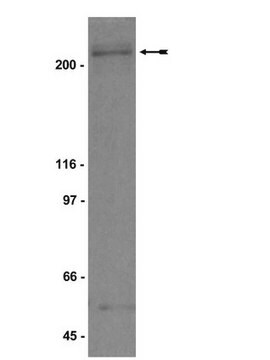
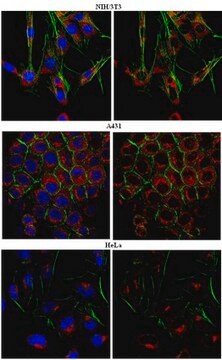
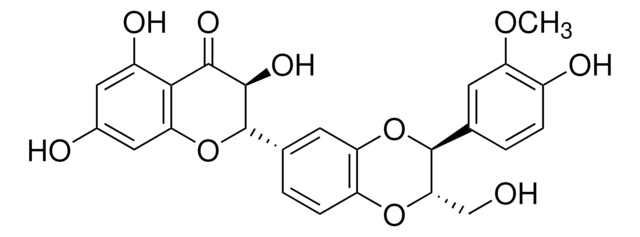
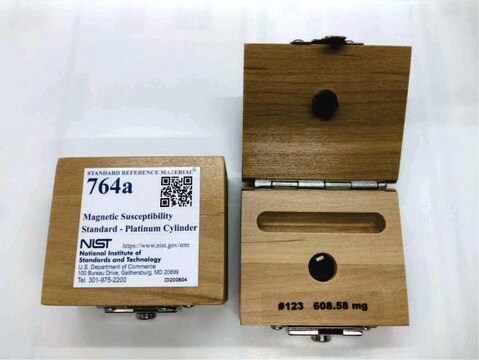
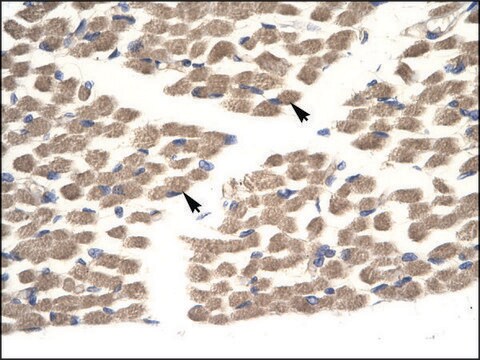
![Anti-OCT-4 [POU5F1] Antibody, clone 7F9.2 clone 7F9.2, from mouse](/deepweb/assets/sigmaaldrich/product/images/307/874/7354f72d-80ee-40a5-b7fa-0590fe6784cc/640/7354f72d-80ee-40a5-b7fa-0590fe6784cc.jpg)
